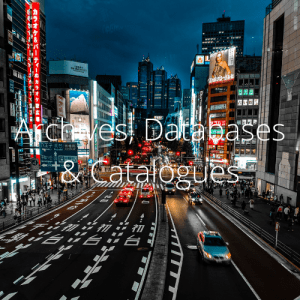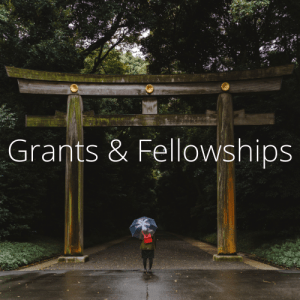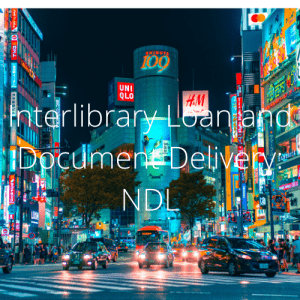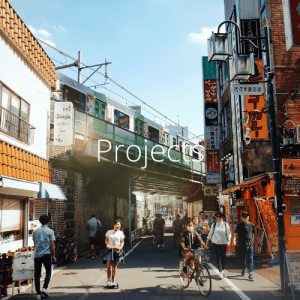Japan at a Distance
ABOUT
The Covid-19 pandemic and related restrictions present a serious challenge to scholars wanting to conduct data collection and/or archival research in Japan. For PhD students and early career researchers especially, developing strategies to overcome these restrictions is essential, both for the immediate success of their project and for their future careers.
This website aims to support scholars working on Japan to respond to the Covid-19 pandemic, both substantively (considering its ongoing implications for Japanese society) and methodologically (assessing its impact on research strategies and tools). We encourage researchers to take the quiz to understand how they might best adapt their plans to the conditions of a global pandemic and make use of the resources available to them. The team is also collecting case studies of successful research adaptations – visit the website in June 2021 to read-up on these examples.
This website was developed from a Research Training Workshop, entitled Research at a Distance: Japan Studies in an age of Covid-19, which was held online over the 21st and 22nd January 2021. The workshop was kindly supported by the Japan Foundation, Sydney and hosted by the University of Melbourne.
Organisers
Dr. Hannah Gould (The University of Melbourne)
Hannah Gould is a cultural anthropologist working in the areas of death, religion, and material culture. Her research is focused processes of disposal and divestment, in regard to both the human dead and material artefacts. Hannah is Research Fellow with the DeathTech Research Team, working on the ARC funded project “Disposal of the dead: beyond burial and cremation”. Her doctoral research investigated transformations to the spiritual economy of domestic Buddhist Altars or butsudan and associated mourning rituals in contemporary Japan.
Dr. Laura Emily Clark (The University of Queensland)
Dr Laura Emily Clark is a Japan studies and gender issues scholar, specialising in contemporary Japanese literature and gender norms, marriage, and ageing. She received her PhD from the University of Queensland for her research on gender ideals in the writing of Haruki Murakami — where she has also taught Japanese language and culture topics. Through her research she explores how mainstream Japanese perceptions of appropriate male and female adulthood in Murakami’s works have shifted over the past 50 years, and how this shapes character self-narrativization, life choices, and performances of gender within male homosocial spaces. She has previously published on masculinity in Murakami, gender in Japanese literature, and the reception of Japanese authors within international literary spheres. She spent 2020 as a Mariko Bando Fellowship recipient at Showa Women’s University in Tokyo, researching contemporary Japanese women’s fiction and discourses of normality. Laura is also a trained freelance editor.
Collaborators
Professor David H. Slater (Sophia University)
David has worked on youth and labor, capitalism and urban space. Since 2011, he has been working on oral narrative, first of disaster and survival in Voices from Tohoku, then of mothers displaced from Fukushima, of youth activists and of homeless men in Tokyo. Currently, he is working on a related project, Voices from Japan, focusing on foreign refugees seeking asylum in Tokyo through the collection of oral narratives and support efforts through the Sophia Refugee Support Group.
Dr. Rebecca Corbett, Japan Studies Librarian (University of Southern California)
Rebecca received her PhD from the University of Sydney and was a Postdoctoral Fellow at Stanford University. Her book Cultivating Femininity: Women and Tea Culture in Edo and Meiji Japan (University of Hawai’i Press, 2018) analyses privately circulated and commercially published texts to show how chanoyu tea practice for women was understood, articulated, and promoted from the eighteenth through early twentieth centuries. Dr. Corbett’s work at USC includes selecting and managing print and digital collections in Japanese; and providing reference and liaison services to support research, teaching, and learning in Japanese Studies. She is a member of the North American Council on East Asian Libraries Committee on Japanese Materials (2020-2023) and Librarian Representative to the North American Coordinating Council on Japanese Library Resources (2020-2023).
Dr. Paula R. Curtis (Yale University)
Paula’s research focuses on metal caster organizations from the twelfth to sixteenth centuries and their relationships with elite institutions. She also works on documentary forgery production and socioeconomic networks during Japan’s late medieval period. Paula is interested in digital humanities and the use of digital tools to analyze premodern historical sources. She manages and collaborates in several online projects, including the Digital Humanities Japan initiative; an online database for resources related to East Asia; the blog What can I do with a B.A. in Japanese Studies; and the digital archive Carving Community: The Landis-Hiroi Collection.
Kaitlyn Ugoretz, PhD Candidate (UC Santa Barbara)
Kaitlyn’s research interests lie at the intersection of religion, digital media, transnational studies, and popular culture. With the support of a Social Science Research Council International Dissertation Research Fellowship, she is currently conducting a multi-sited digital ethnography of transnational, online communities of Shinto practitioners on social media entitled World-Wide Shinto. Kaitlyn also works to adapt traditional and innovate natively digital ethnographic methods and theory to best navigate, archive, analyze, and contribute back to online field sites. As part of her commitment to public scholarship, she hosts the educational YouTube channel Eat Pray Anime and writes about East Asian religions for the Religion For Breakfast channel.
Program Mentors
Dr. Laura Dales (University of Western Australia)
Laura Dales (PhD, UWA) is Senior Lecturer in Asian Studies at the University of Western Australia. Her main research interests include agency, sexuality, friendship and dating across Asia, as well as singlehood and marriage in contemporary Japan. Recent publications include the edited collection (with Romit Dasgupta and Tomoko Aoyama) Configurations of Family in Contemporary Japan (Routledge, 2015), as well as chapters in the books Intimate Japan (Alexy & Cook eds., University of Hawai’i Press, 2018) and Happiness and the Good Life in Japan (Manzenreiter & Holthus eds., Routledge, 2017). She is currently writing a book based on an ARC-funded project examining intimacy beyond the family in contemporary Japan.
Associate Professor Carol Hayes (Australian National University)
Carol Hayes specialises Japanese cultural production including literature, film and popular culture, such as anime and manga. Her research interests include modern Japanese poetry and the portrayal of social/cultural issues in literature and film. Carol’s research also includes Japanese language teaching methodologies and practice, particularly e-Teaching and e-Learning with a focus on flexible, online learning, student motivation and Japanese language acquisition.
The following interactive tool was developed in order to help guide students through the processing of readjusting and re-planning their research project in relation to the difficulties created by Covid-19.
Information provided in the quiz is derived from anecdotes, advice, and research provided by the mentors and participants in the project Workshop. Completing the quiz will send you through to different websites and resources developed to support students, including videos from the project workshop.
There are now a large number of resources created by universities, external organisations, and governments to support ‘research at a distance’ in and on Japan, before, during and after Covid-19. This page brings these resources together into a central hub for easy access. We would like to extend our special thanks to Dr Rebecca Corbett and Dr Paula Curtis who in addition to speaking at the webinar also provided a helpful list of resources and guides that are included in the pages below.
These resources will be updated each quarter of 2021. To submit an additional resource, please email the team at: japanresearchworkshop(at)gmail(dot)com
Archival Research
When sourcing archival materials and literature from overseas, we recommend the following services. Luckily, many of them have stepped up their activities during the Covid-19 lockdown, so we are likely to see updates during 2021.
Digital Ethnography
In addition, you can view Kaitlyn’s talk here on conducting Digital Ethnography in/of Japan from a distance, presented at our February 2021 Workshop.
Six months after the initial Workshop, the research team will interview our participants to find out how they have adapted their research projects to the conditions imposed by Covid-19
Please visit in June 2021 to read stories of students and ECAs adapting their research to an age of Covid-19 – the struggles, the strategies, and the triumphs!








